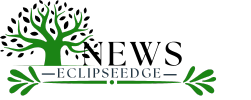
10 Practical Q&A About Embracing Lifelong Learning
1. What is lifelong learning?
Answer: Lifelong learning is the continuous, self-initiated, and self-directed process of learning throughout one’s life for personal or professional development. It includes formal education, self-study, and informal learning, which helps in developing skills, updating knowledge, and developing a person.
2. Why should I embrace lifelong learning?
Answer: Embracing lifelong learning allows you to adapt to changes, learn new skills, stay relevant in your career, and enjoy a more rewarding personal life. It develops the skill of thinking critically, increases confidence, and opens up new opportunities, making you more flexible and agile in this fast-paced world.
3. How can I fit lifelong learning into my already busy schedule?
Answer: To make time for lifelong learning, prioritize learning as a daily or weekly habit. Dedicate small, manageable chunks of time, such as during commutes, breaks, or weekends. Use resources like podcasts, audiobooks, or online courses that fit into your schedule to maximize learning without overwhelming yourself.
4. What are some affordable ways to engage in lifelong learning?
Answer: There are many free and low-cost options for lifelong learning, including free online courses (Coursera, edX, Khan Academy), public libraries for books and audiobooks, podcasts, educational YouTube channels, and free workshops. Many universities and institutions also offer low-cost or free webinars and events.
5. How can I stay motivated to continue learning over time?
Set realistic, attainable learning objectives and monitor your progress. Share milestones with others, or join study groups or communities to be held accountable. You can also keep motivated by focusing on your passions or how the knowledge will benefit your career or life.
6. What skills do I focus on while practicing lifelong learning?
Answer: Some of the most important skills include critical thinking, communication, problem-solving, digital literacy, adaptability, and emotional intelligence. Depending on your personal or professional goals, you may also want to focus on more specialized skills, such as coding, project management, or public speaking.
7. How do I incorporate lifelong learning into my career development?
Answer: Seek opportunities for professional development in the form of certifications, workshops, or industry conferences. Read articles, listen to webinars, and connect with colleagues to keep abreast of the latest industry trends. Mentorship or cross-disciplinary learning can also help you broaden your expertise and career.
8. How do I overcome the fear of learning new things as an adult?
Answer: It is a process, and there is room for mistakes. One can take little steps, beginning with something that is familiar and gradually building confidence. Surround oneself with supportive people, seek guidance when needed, and remind oneself that the benefits of learning outweigh initial discomfort.
9. What is the role of curiosity in lifelong learning?
Answer: Curiosity is the fuel for lifelong learning. It provides a sense of wanting to explore new things, ask questions, and find answers. Curiosity keeps you open-minded and allows you to embrace different perspectives and grow continuously as well as broaden your knowledge.
10. How do I track my progress in lifelong learning?
Answer: Keep a learning journal or create a portfolio of achievements to monitor what you learned. Set up short- and long-term learning objectives and review it periodically. Also, you could use online programs that provide certificate awards or document courses and skills received, which allows for a practical record of how you have changed.
Embracing lifelong learning is indeed a fulfilling journey and enhances personal and professional growth. Through staying curious, motivated, and consistent, you shall always expand your knowledge, make it amenable to change, and open new opportunities throughout life.



